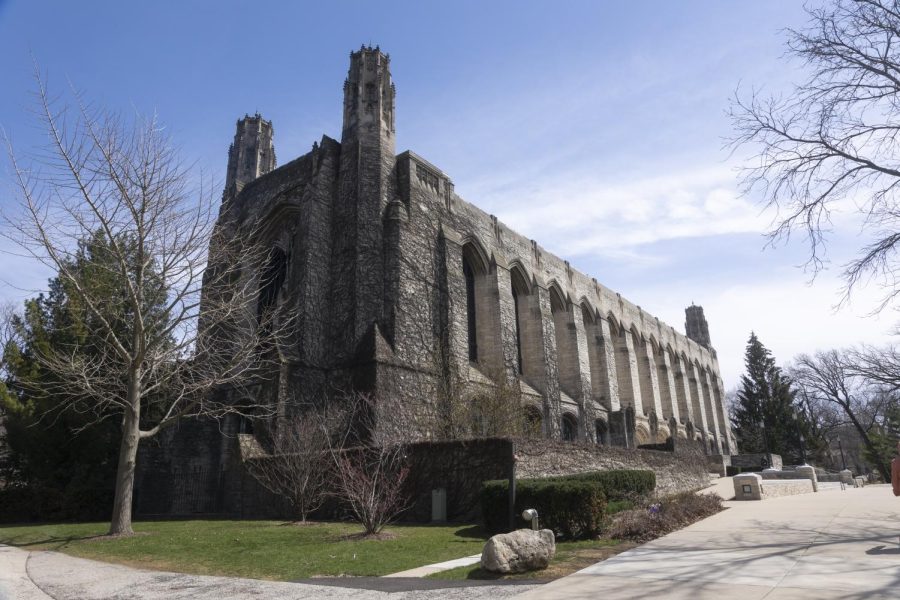McCormick Library Archives work to diversify collections
Daily file photo by Ava Mandoli
The Mccormick Library Archives are stored in University libraries, an on-campus storage unit and a storage unit in Waukegan, Illinois. The collections are open to the public and students.
April 25, 2023
With one of the largest collections of Western classical modern music in the world and about 36,000 linear feet of historical documents, recordings and objects, the Charles Deering McCormick Library Archives allow students and researchers to delve into primary texts.
Dana Lamparello, head of Public Services at the McCormick Library of Special Collections and University Archives, said the archives are divided into three main areas in the library: the University Archives –– which include primary sources relating to NU –– the Special Collections and the Music Library.
Lamparello said the University archivists fill the collection with materials, which include diaries, photographs, audio materials, tweets and any other type of creative output, from NU alumni and University donations.
Until recently, however, Lamparello said a majority of that history was told through the eyes of NU’s administration. The library has been trying to build a more comprehensive history in the past few years.
“We have a lot of records that tell the story of students from the administrative perspectives, and we’re trying to have students control their own narratives,” Lamparello said. “We’re putting the power in their hands.”
Weinberg junior Jane Clarke said she sorted through Willard Residential College records for materials about Willard residents from 30-40 years ago to donate to the University Archives during her first two years at NU. Willard was originally a female dorm until it became the first undergraduate co-ed housing in 1970.
After reading through documents about Willard, Clarke said she felt more connected to the University and its history.
“It was really exciting to go and look at materials from our residential college back from the ’70s and ’80s,” she said.
The University Archives are not limited to written accounts like the ones Clarke perused. During Clarke’s History 393: History of Abortion in the United States class, a graduate student interviewed her and her classmates about their thoughts on abortion to add to the archive’s oral history.
Clarke said the archives hold other “exciting” collections that are worth exploring, including the music collections.
The library’s music collection includes sound recordings, CDs, records, tapes and streaming media and is sponsored by NU and donor funding.
Gregory MacAyeal, a curator for the Music Library, said the staff has tried to buy every piece of Western classical music written in the past five decades for the collection. He estimated the music archives currently hold about 350,000 items.
MacAyeal said he’s trying to expand the collections to include works of marginalized classical artists that have been “ignored” throughout history.
“We’re starting to collect more work from composers who were writing that same style of music, but because of their race, they’ve been ignored,” he said.
MacAyeal said he recently acquired archives in the form of tape that originally aired on a 1970s radio station that played classical music by Black musicians. He said he also is currently working with a student to include more composers from the Middle East and North Africa.
According to MacAyeal, people from around the world come to visit the collections. The John Cage correspondence collection, which contains letters between American composer John Cage and his musical peers, has been the most visited collection so far this year, with 178 visitors.
University Archivist Kevin Leonard has been working full-time for the archives since 1980. He said there are “endless” sources to explore.
“The size of our buildings (is) comparable with major public institutions that have far greater student enrollments and faculty sizes,” Leonard said. “I am proud to say we do a good job.”
Email: [email protected]
Twitter: @KristenAxtman1
Related Stories:
— Deering Library debuts Frederick Douglass exhibition


